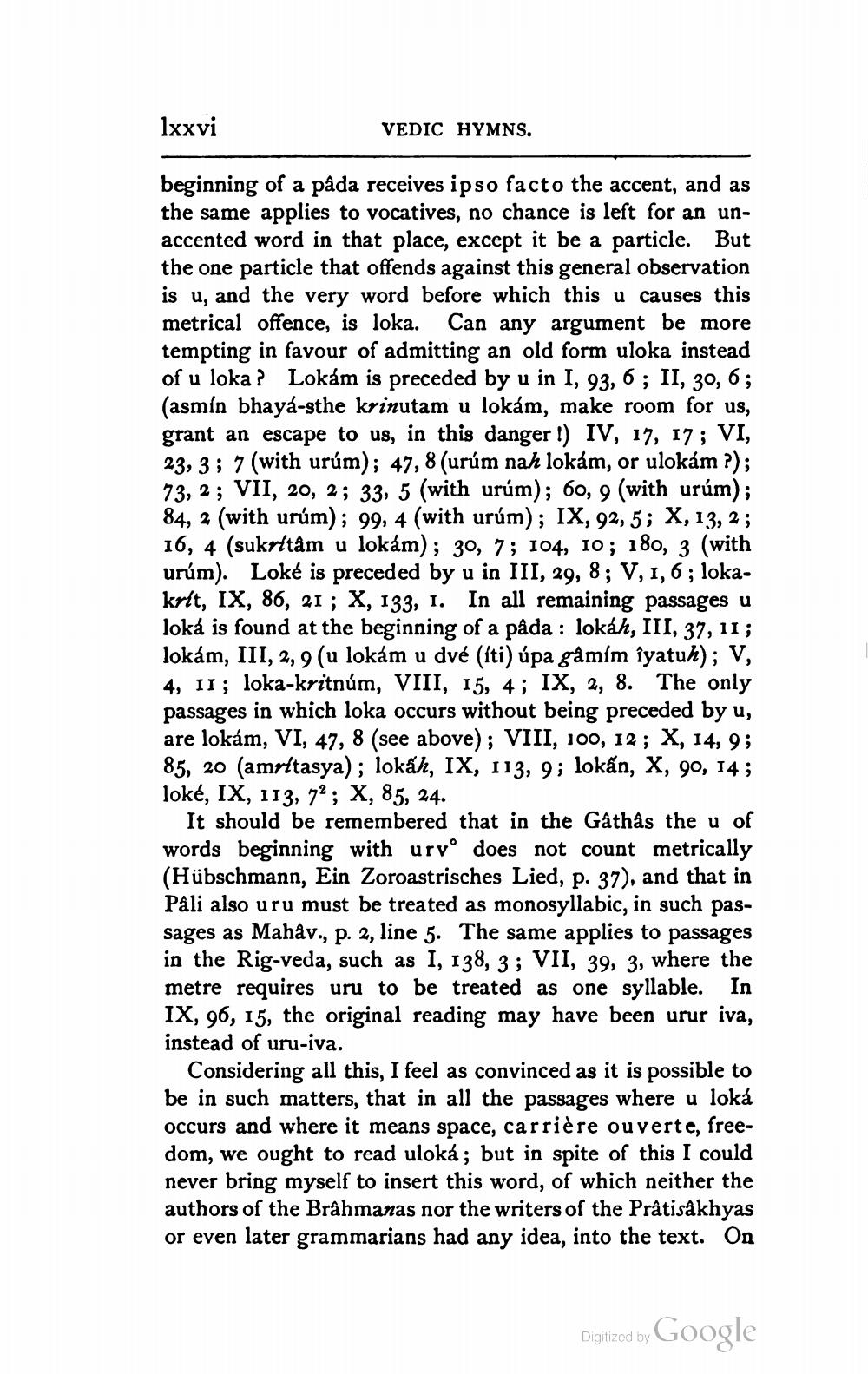________________
lxxvi
VEDIC HYMNS.
beginning of a pâda receives ipso facto the accent, and as the same applies to vocatives, no chance is left for an unaccented word in that place, except it be a particle. But the one particle that offends against this general observation is u, and the very word before which this u causes this metrical offence, is loka. Can any argument be more tempting in favour of admitting an old form uloka instead of u loka? Lokám is preceded by u in I, 93, 6 ; II, 30, 6; (asmin bhaya-sthe krinutam u lokám, make room for us, grant an escape to us, in this danger !) IV, 17, 17; VI, 23, 3 ; 7 (with urúm); 47, 8 (urúm nah lokám, or ulokám ?); 73, 2; VII, 20, 2; 33, 5 (with urúm); 60, 9 (with urúm); 84, 2 (with urúm); 99, 4 (with urúm); IX, 92, 5; X, 13, 2; 16, 4 (sukritâm u lokám); 30, 7; 104, 10; 180, 3 (with urúm). Loké is preceded by u in III, 29, 8; V, 1,6 ; lokakelt, IX, 86, 21; X, 133, 1. In all remaining passages u loká is found at the beginning of a pâda : lokáh, III, 37, 11; lokám, III, 2,9 (u lokám u dvé (íti) úpa gåmím îyatuh); V, 4, II; loka-kritnúm, VIII, 15, 4; IX, 2, 8. The only passages in which loka occurs without being preceded by u, are lokám, VI, 47, 8 (see above); VIII, 100, 12; X, 14, 9; 85, 20 (amrttasya); lokáh, IX, 113, 9; lokấn, X, 90, 14; loké, IX, 113, 72; X, 85, 24.
It should be remembered that in the Gathâs the u of words beginning with urvo does not count metrically (Hübschmann, Ein Zoroastrisches Lied, p. 37), and that in Pali also uru must be treated as monosyllabic, in such passages as Mahav., p. 2, line 5. The same applies to passages in the Rig-veda, such as I, 138, 3 ; VII, 39, 3, where the metre requires uru to be treated as one syllable. In IX, 96, 15, the original reading may have been urur iva, instead of uru-iva.
Considering all this, I feel as convinced as it is possible to be in such matters, that in all the passages where u loká occurs and where it means space, carrière ouverte, freedom, we ought to read uloká; but in spite of this I could never bring myself to insert this word, of which neither the authors of the Brâhmanas nor the writers of the Prâtisakhyas or even later grammarians had any idea, into the text. On
Digitized by Google




